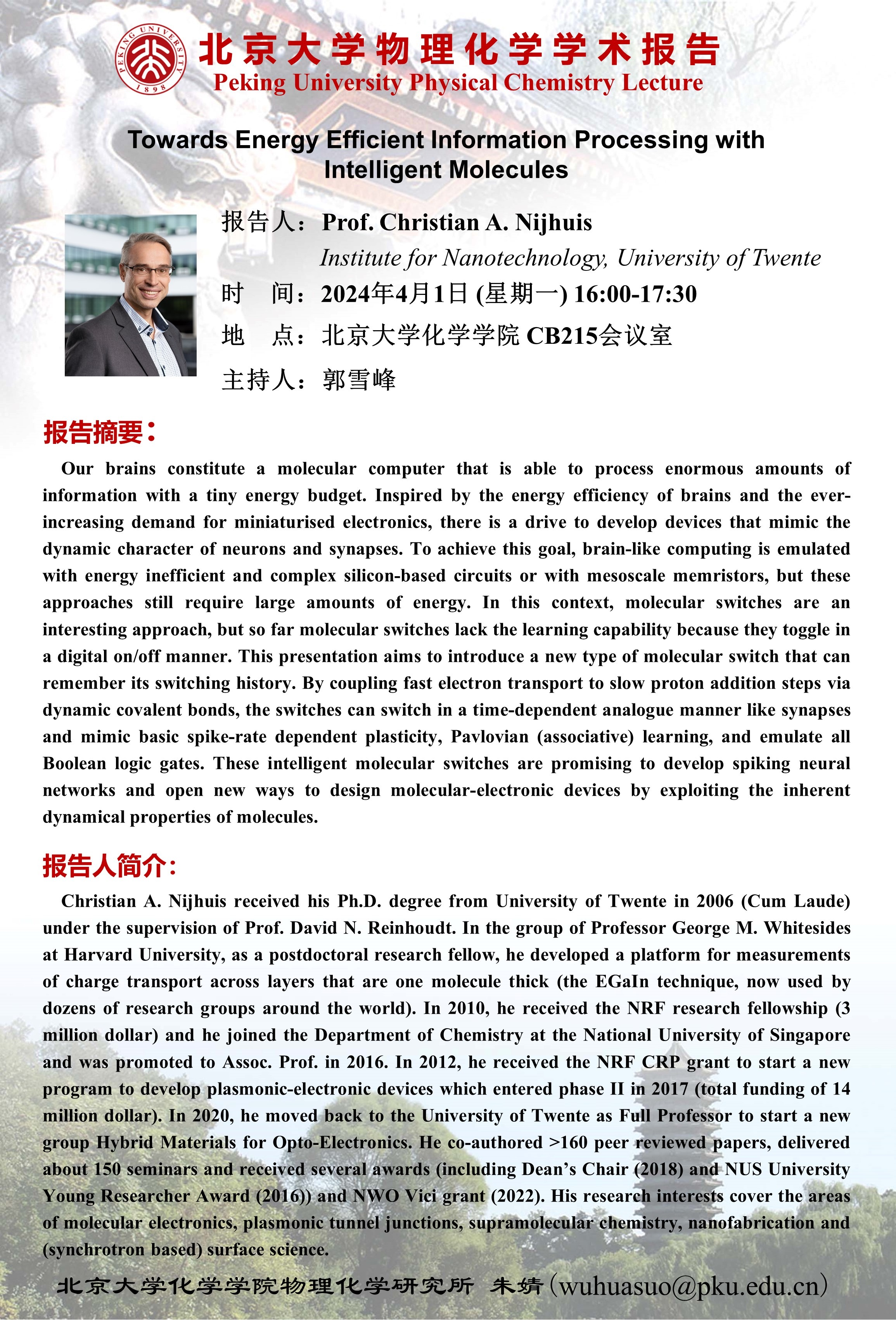
Speaker: Prof. Christian A. Nijhuis, Institute for Nanotechnology, University of Twente
Time: 16:00—17:30 p.m., April 1, 2024, GMT+8
Venue: Room CB215, CCME, PKU
Abstract:
Our brains constitute a molecular computer that is able to process enormous amounts of information with a tiny energy budget. Inspired by the energy efficiency of brains and the ever-increasing demand for miniaturised electronics, there is a drive to develop devices that mimic the dynamic character of neurons and synapses. To achieve this goal, brain-like computing is emulated with energy inefficient and complex silicon-based circuits or with mesoscale memristors, but these approaches still require large amounts of energy. In this context, molecular switches are an interesting approach, but so far molecular switches lack the learning capability because they toggle in a digital on/off manner. This presentation aims to introduce a new type of molecular switch that can remember its switching history. By coupling fast electron transport to slow proton addition steps via dynamic covalent bonds, the switches can switch in a time-dependent analogue manner like synapses and mimic basic spike-rate dependent plasticity, Pavlovian (associative) learning, and emulate allBoolean logic gates. These intelligent molecular switches are promising to develop spiking neural networks and open new ways to design molecular-electronic devices by exploiting the inherent dynamical properties of molecules.
Source: College of Chemistry and Molecular Engineering, PKU
